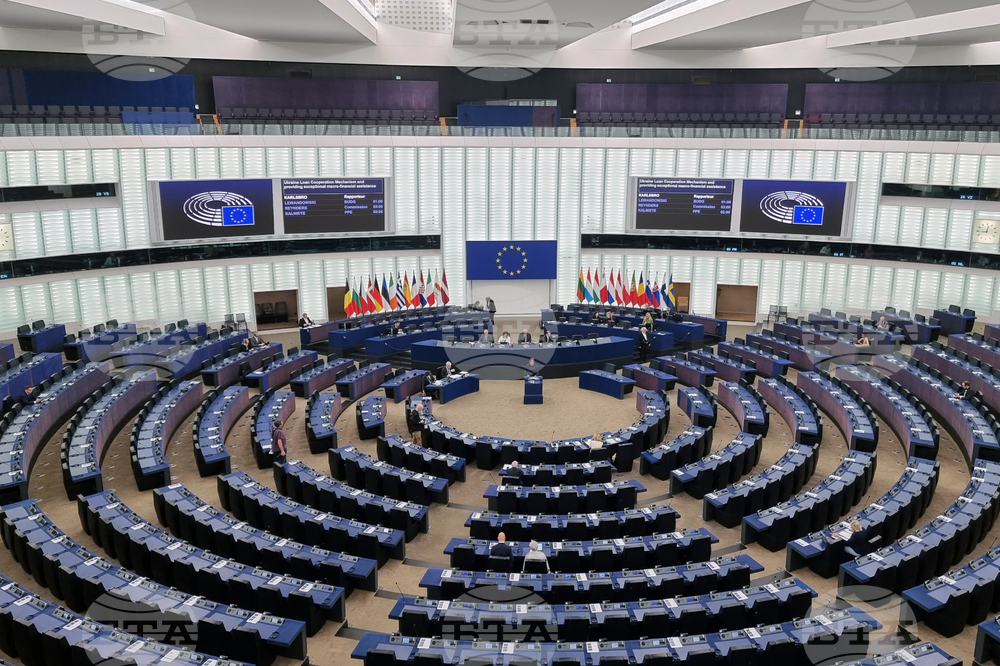site.btaEuropean Parliament Calls for Ceasefire in Lebanon, Protection of UNIFIL


The European Parliament (EP) has called for a ceasefire in Lebanon and for the protection of the United Nations Interim Force in Lebanon (UNIFIL) following recent attacks on the mission. MEPs discussed the issue on Tuesday morning during a sitting, which runs from October 21 to 24 in Strasbourg.
Speakers emphasized the urgent need for a ceasefire in Lebanon, where escalating violence between Israel and Iran-backed Hezbollah in late September has raised concerns about a broader conflict in the Middle East. However, there were varying perspectives among political groups, especially regarding who is responsible for the current eruption of violence and the future of Hezbollah.
Speaking on behalf of the European Commission in Strasbourg on Tuesday, European Commissioner for Crisis Management Janez Lenarcic called for immediate de-escalation and a ceasefire. He said that Lebanon is fragile and grappling with multiple crises, warning that the Israeli military operation threatens to further fuel the conflict, which could spill over the entire region. Lenarcic also stressed that civilians are at the greatest risk.
He recalled that under UN Security Council Resolution 1701, UNIFIL is supposed to be the only armed force operating in Lebanon south of the Litani River. He highlighted that 16 EU Member States are currently contributing to the UN peacekeeping mission, demonstrating the EU's strong political support for the UN force.
Lenarcic condemned the Israeli attacks on UNIFIL as a serious violation of international law, recalling that the EU demanded an immediate stop to these attacks last week.
During the debate, Nicolas Pascual De La Parte of the European People's Party, the largest group in the EP, called for the immediate dismantling and disarmament of Hezbollah, emphasizing that negotiations with a terrorist organization are impossible.
Yannis Maniatis of the Progressive Alliance of Socialists and Democrats acknowledged Israel's right to self-defense but stressed that it must be exercised in accordance with international law, without bombing other countries. The Greek socialist pointed out that some 2,500 civilians have been killed in Lebanon so far, and 1.5 million people have been displaced.
Maniatis concluded by calling for an end to the vicious cycle of violence, including a ceasefire in Gaza.
Jordan Bardella of the far-right Patriots for Europe group emphasized that Israel was engaged in a legitimate fight against Islamic terrorism within the bounds of international law. He added that Lebanon must reclaim its sovereignty from terrorists, referring to Hezbollah’s reputation as a state within a state. Bardella also called for France to play a role in securing a ceasefire.
Carlo Fidanza of the European Conservatives and Reformists said that Italian Prime Minister Giorgia Meloni was the first EU leader to visit Lebanon since the violence escalated. He called for a ceasefire in both Lebanon and Gaza and for the release of the hostages held by Hamas in Gaza.
Christophe Grudler of the liberal Renew Europe group condemned the attacks on UNIFIL as a violation of international law, calling for an immediate ceasefire. However, he expressed a pessimistic view, saying the current escalation leaves a sense of deja vu.
Leoluca Orlando of the Greens said that the military aggression against UNIFIL is deliberate, not accidental, stressing that Israel must defend itself in accordance with international law.
Lynn Boylan of the Left group condemned what she called Israeli aggression in Lebanon and Gaza. She said that Israel is deliberately attacking UN forces and questioned the EU’s moral compass. Boylan added that hypocrisy must stop.
Tomasz Froelich of the far-right Europe of Sovereign Nations group said that while Israel has the right to defend itself, it should not turn the Middle East into ashes. He added that this is no longer self-defense but rather "hell on Earth," and called for an end to arms supplies to Israel.
Hezbollah has been shelling northern Israel since the start of the Gaza conflict, which was triggered by an attack from Hamas, another Iran-backed group, on southern Israeli areas on October 7, 2023. The Israeli military launched its operation in Lebanon to stop the cross-border shelling and allow displaced residents to return to their homes.
/YV/
news.modal.header
news.modal.text